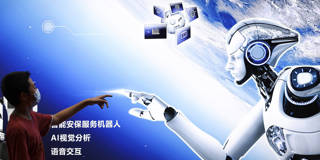Since a “pause” on the development of artificial intelligence is a non-starter, we should devote our resources to preparing for the social and economic displacements that we know are coming. The key will be to let AIs and humans each do what they do best, and to figure out how AI and humans can best work together on everything else.
NEW YORK – Everywhere we look nowadays, we find warnings that artificial-intelligence algorithms are coming for our jobs. While Goldman Sachs estimates that two-thirds of all current jobs in the United States and Europe could be “exposed to some degree of AI automation” in the coming years, a report from Pew Research Center puts the figure at closer to one-fifth – with a special emphasis on jobs requiring a college education.
There is a strong consensus that AI algorithms are becoming increasingly capable of performing more tasks far better than humans can, and that this trend will continue indefinitely. Though the future is always uncertain, we are clearly entering a new phase of human development in which AI will play an increasingly central role in our lives, work, and world. Its algorithms will not just offer better versions of existing services like internet search; instead, like written language, electricity, and computing, they will be woven into most every aspect of how we interact with each other and the world around us.
The dawn of a new AI age does not mean that dusk is approaching for humans. We humans have always co-evolved with our technologies, and this time will be no exception. Learning to cook with fire helped us reallocate energy from digestion to our brains – which in turn allowed us to evolve stronger forms of social organization. Domesticating plants and animals helped us stay put, so that more people could do things other than hunting, gathering, and farming – which in turn allowed our technologies, cultures, and civilizations to grow. Industrialization gave us the tools to expand our population, build modern megacities, and make our way into space.

NEW YORK – Everywhere we look nowadays, we find warnings that artificial-intelligence algorithms are coming for our jobs. While Goldman Sachs estimates that two-thirds of all current jobs in the United States and Europe could be “exposed to some degree of AI automation” in the coming years, a report from Pew Research Center puts the figure at closer to one-fifth – with a special emphasis on jobs requiring a college education.
There is a strong consensus that AI algorithms are becoming increasingly capable of performing more tasks far better than humans can, and that this trend will continue indefinitely. Though the future is always uncertain, we are clearly entering a new phase of human development in which AI will play an increasingly central role in our lives, work, and world. Its algorithms will not just offer better versions of existing services like internet search; instead, like written language, electricity, and computing, they will be woven into most every aspect of how we interact with each other and the world around us.
The dawn of a new AI age does not mean that dusk is approaching for humans. We humans have always co-evolved with our technologies, and this time will be no exception. Learning to cook with fire helped us reallocate energy from digestion to our brains – which in turn allowed us to evolve stronger forms of social organization. Domesticating plants and animals helped us stay put, so that more people could do things other than hunting, gathering, and farming – which in turn allowed our technologies, cultures, and civilizations to grow. Industrialization gave us the tools to expand our population, build modern megacities, and make our way into space.